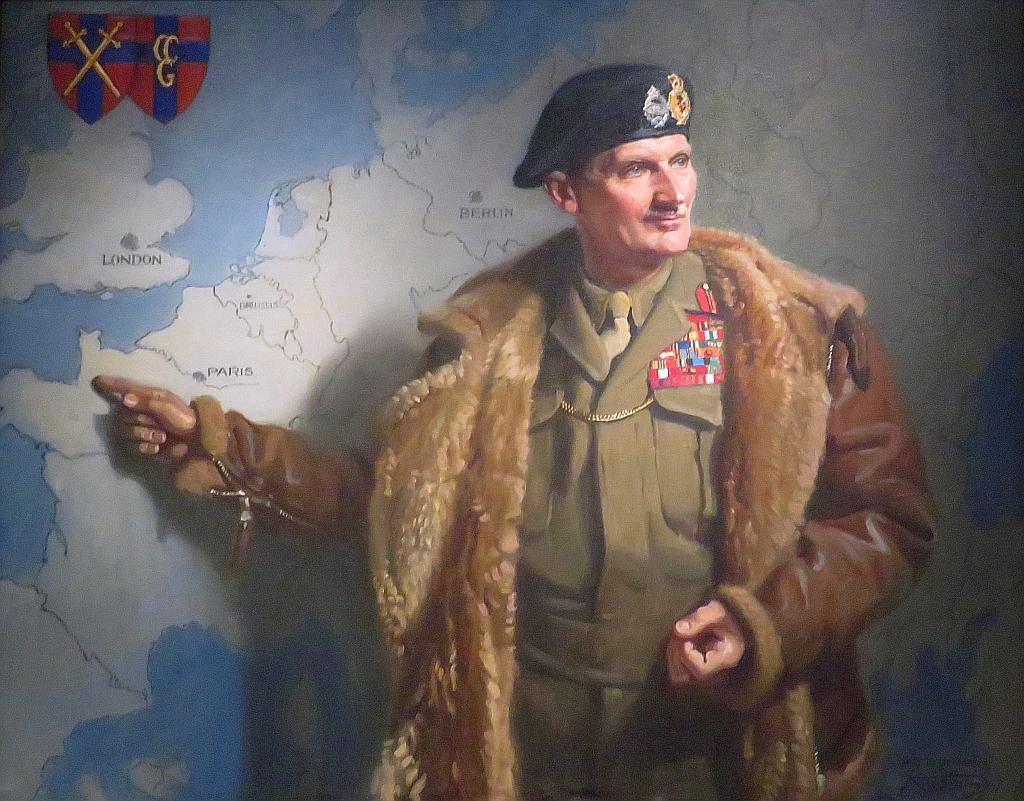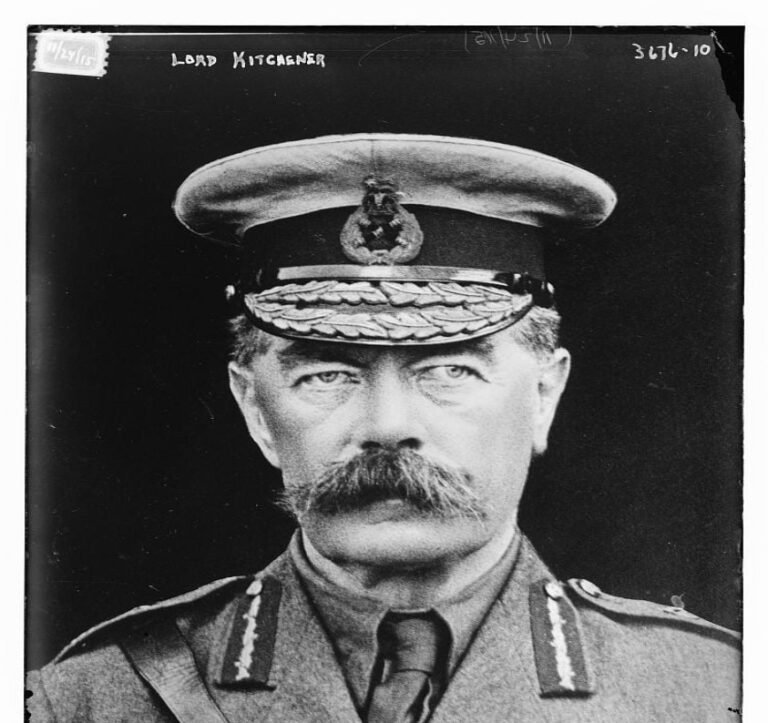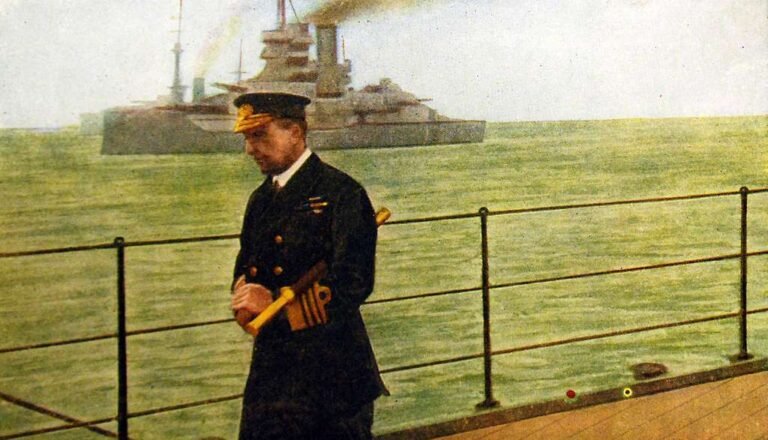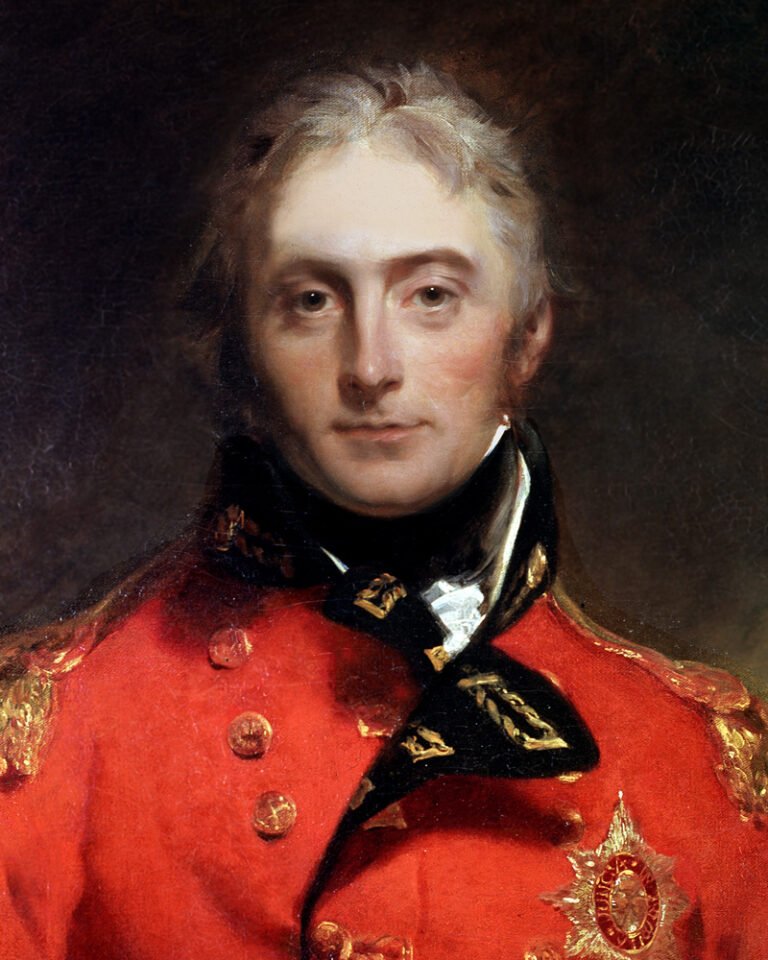Field Marshal Bernard Montgomery was a prominent British military leader. He played a crucial role in World War II.
Montgomery’s leadership style and tactical brilliance made him a key figure in Allied victories. Born in 1887, he rose through the ranks to become one of Britain’s most celebrated generals. His most notable achievement was leading the Eighth Army to victory at the Battle of El Alamein.
This win was a turning point in the North African campaign. Montgomery’s strategies and decisions often sparked controversy, but his contributions to the war effort are undeniable. Understanding his life and career offers valuable insights into military history and leadership. In this blog post, we’ll explore the remarkable journey of Field Marshal Bernard Montgomery.
Early Life And Military Beginnings
Bernard Montgomery was born in London in 1887. His military career began in World War I, where he quickly gained recognition for his leadership skills. He later became a key figure in World War II, known for his strategic brilliance.
Field Marshal Bernard Montgomery, known for his strategic brilliance, had a remarkable life. His early years and military career laid the foundation for his future successes.
Childhood And Education
Bernard Montgomery was born on November 17, 1887. His family lived in London. His father was a bishop, and his mother was strict. Montgomery had a tough childhood. He often clashed with his mother. Despite these challenges, he was determined.
Montgomery attended St. Paul’s School in London. He was not an outstanding student. However, he showed leadership qualities. His time at school shaped his character. It prepared him for future military roles.
Initial Military Career
Montgomery joined the British Army in 1908. He was commissioned into the Royal Warwickshire Regiment. His early military career was challenging. He served in India, where he gained valuable experience.
During World War I, Montgomery served on the Western Front. He was wounded in the Battle of Ypres. His bravery earned him recognition. He continued to rise through the ranks. His leadership and tactical skills became evident.
Montgomery’s early military experiences were crucial. They helped shape his strategies in later years. He became known for his meticulous planning. His early career was a testament to his dedication and skill.

Credit: en.wikipedia.org
Rise To Prominence
Field Marshal Bernard Montgomery rose to prominence during World War II. His strategic brilliance led the Allies to key victories. Montgomery’s leadership in the Battle of El Alamein was crucial.
Field Marshal Bernard Montgomery, often known as “Monty,” had a remarkable military career. His journey to becoming one of Britain’s most celebrated commanders was marked by key battles and promotions.
Key Battles And Promotions
Montgomery’s first major success was during World War I. He served with distinction in the British Expeditionary Force. His actions in the Battle of Arras earned him recognition and promotion.
During World War II, Montgomery played a crucial role. He led the British Eighth Army to victory in the Battle of El Alamein. This victory was a turning point in the North African campaign. It halted the advance of German forces and boosted Allied morale.
After El Alamein, Montgomery’s reputation soared. He was promoted to full General and given command of the Allied ground forces during the D-Day invasion. His leadership during Operation Overlord was pivotal. It led to the liberation of Western Europe from Nazi control.
Leadership Style
Montgomery was known for his meticulous planning. He believed in thorough preparation and clear communication. His leadership style was often described as direct and no-nonsense. He demanded high standards from his troops.
Montgomery’s ability to inspire his men was notable. He often visited the front lines to boost morale. His speeches were motivational, instilling confidence and determination in his soldiers.
Montgomery also emphasized the importance of discipline. He maintained strict control over his forces. This discipline was crucial in executing complex operations.
His approach to leadership ensured that his troops were always well-prepared. This meticulous preparation often gave them an edge in battle.
Montgomery’s rise to prominence was a testament to his strategic genius. His leadership in key battles and his unique style made him a legendary figure in military history.
“`
North African Campaign
The North African Campaign was a significant part of World War II. This campaign spanned from 1940 to 1943. It involved battles between the Allied and Axis powers. The desert terrain posed unique challenges. Bernard Montgomery played a key role in this campaign. He led the British Eighth Army to several victories.
El Alamein Victory
The Battle of El Alamein marked a turning point. Bernard Montgomery took command in August 1942. His leadership was crucial. Montgomery’s troops were well-prepared and motivated. They faced the German-Italian army, led by Erwin Rommel.
The battle began on October 23, 1942. Montgomery’s strategy was meticulous. His forces launched a surprise attack. They broke through the enemy lines. The Axis powers were forced to retreat. This victory boosted the morale of the Allied forces.
Impact On Allied Strategy
El Alamein was more than just a battle. It changed the course of the war. The Allies gained confidence. They saw that the Axis powers could be defeated. This victory led to further Allied advances in North Africa. It set the stage for the invasion of Italy.
Montgomery’s success at El Alamein had a ripple effect. The Allies began to believe in their strategies. They saw the importance of coordination. This victory emphasized the need for strong leadership. Montgomery became a symbol of hope and determination.

Credit: www.britannica.com
Italian Campaign
The Italian Campaign was a significant part of World War II. Field Marshal Bernard Montgomery played a crucial role in this campaign. He was known for his strategic brilliance and leadership.
Sicily Invasion
Montgomery led the British Eighth Army during the Sicily invasion. This operation, known as Operation Husky, began in July 1943. The goal was to capture Sicily from Axis powers. Montgomery’s forces landed on the southeast coast of Sicily. They faced tough resistance from German and Italian troops. Despite challenges, Montgomery’s leadership ensured rapid progress.
His strategies focused on coordinated attacks and securing key positions. The British Eighth Army captured several towns and cities. They moved towards Messina, a crucial objective. By August 1943, Allied forces had control of Sicily. Montgomery’s tactics contributed to this victory.
Contributions To Italian Front
After Sicily, Montgomery’s efforts shifted to mainland Italy. He aimed to push Axis forces out of Italy. His leadership was pivotal in the battles that followed. Montgomery’s strategies involved careful planning and execution. He emphasized coordination between air, land, and sea forces.
Montgomery’s troops faced fierce resistance from German forces. He managed to break through the Gustav Line, a major defensive position. His focus on morale and discipline kept his troops motivated. The Allied forces made significant advances under his command.
Field Marshal Montgomery’s contributions were vital. His leadership and strategies helped in achieving key victories. The Italian Campaign showcased his military genius and determination.
D-day And Normandy
The D-Day and Normandy campaign marked a turning point in World War II. Bernard Montgomery, a key figure, played an essential role in this historic event. His strategic planning and leadership were critical to the success of the Allied forces. Let’s explore his contributions in detail.
Planning Operation Overlord
Bernard Montgomery took charge of planning Operation Overlord. This operation was the code name for the Battle of Normandy. He focused on coordinating the land, sea, and air forces. His goal was to ensure a successful invasion. Montgomery’s plans were detailed and meticulous. He left nothing to chance.
He aimed to overwhelm the German defenses. Montgomery proposed landing five divisions across a 50-mile stretch of beach. This area was divided into five sectors: Utah, Omaha, Gold, Juno, and Sword. Each sector had specific objectives. The plan was to establish a strong foothold in Normandy.
Battle Of Normandy
The Battle of Normandy began on June 6, 1944, known as D-Day. Montgomery’s forces faced fierce resistance. The beaches were heavily fortified. Despite this, the Allies secured the beaches. They pushed inland, liberating towns and villages.
Montgomery’s leadership was crucial during the battle. He adapted to changing situations. He coordinated with other Allied commanders. The battle lasted for several weeks. The Allies eventually broke through the German lines. This victory paved the way for the liberation of Western Europe.
The success of the Normandy campaign showcased Montgomery’s strategic brilliance. His meticulous planning and adaptive leadership were key factors. The victory at Normandy was a significant step towards ending World War II.

Credit: www.junobeach.org
Market Garden
Field Marshal Bernard Montgomery is a name synonymous with leadership and military strategy. One of his most daring operations was Market Garden, a bold attempt to end World War II quickly by capturing key bridges in the Netherlands. This operation, however, turned out to be more complex than anticipated.
Concept And Execution
Market Garden was an ambitious plan. The aim was to secure a series of bridges over major rivers in the Netherlands. This would allow Allied forces to advance into Germany and potentially end the war by Christmas of 1944.
The operation involved both airborne and ground troops. Paratroopers were dropped behind enemy lines to capture the bridges. Ground forces then raced to link up with them. The plan seemed foolproof but reality proved otherwise.
Montgomery’s strategy relied heavily on speed and surprise. Unfortunately, this left little room for error. The execution faced unexpected challenges, including stronger-than-anticipated German resistance and logistical issues.
Lessons Learned
Market Garden was a costly lesson in military planning. One key takeaway was the importance of reliable intelligence. The Allies underestimated the strength of German forces, leading to significant losses.
Coordination between different units also proved crucial. The plan required seamless cooperation between airborne and ground troops. When this faltered, it led to delays and missed objectives.
Reflecting on Market Garden, you might wonder: could more cautious planning have avoided the pitfalls? This operation teaches the value of balancing boldness with prudence. In your endeavors, consider whether you’re taking calculated risks or overestimating your capabilities.
The operation’s failure also highlights the importance of flexibility. Plans often need to adapt to changing circumstances. Are you prepared to pivot when faced with unexpected challenges?
Market Garden remains a significant historical event. Studying it offers valuable insights into leadership, strategy, and the complexity of executing ambitious plans. As you navigate your own challenges, remember the lessons learned from Montgomery’s daring but flawed operation.
Later Years And Legacy
Field Marshal Bernard Montgomery retired in 1958 and continued to write and lecture on military strategy. His legacy includes significant contributions to Allied victories in World War II, influencing military tactics for future generations.
Field Marshal Bernard Montgomery’s later years and legacy are a testament to his enduring influence on military strategy and leadership. His post-war roles and the lasting impact on military doctrine highlight his continued dedication and visionary approach.
Post-war Roles
After World War II, Montgomery continued to serve in various significant roles. He became Chief of the Imperial General Staff, guiding the British Army during the early years of the Cold War. His leadership was instrumental in shaping post-war military policies.
Montgomery also served as Deputy Supreme Commander of NATO in Europe. His expertise and strategic insight were crucial during the formation of NATO, ensuring the alliance’s readiness to counter potential threats.
In his later years, Montgomery authored numerous books on military strategy, sharing his experiences and knowledge. These writings provided valuable insights for future military leaders.
Lasting Impact On Military Doctrine
Montgomery’s approach to military operations has had a lasting impact on military doctrine. His emphasis on meticulous planning and preparation became a cornerstone of modern military strategy.
He championed the importance of morale and leadership, believing that a well-led army could overcome significant challenges. This principle continues to be a fundamental aspect of military training and leadership development.
Montgomery’s innovative tactics during the Battle of El Alamein are studied in military academies worldwide. His ability to adapt and respond to changing battlefield conditions has inspired generations of military strategists.
Montgomery’s legacy is a powerful reminder of the importance of strong leadership and strategic thinking. How can we apply his principles of preparation and adaptability in our own lives?
His contributions extend beyond the battlefield, influencing military policies and strategies for decades. What lessons can we learn from his unwavering dedication and visionary approach?
Field Marshal Bernard Montgomery’s legacy is a beacon for those aspiring to lead with courage and intelligence. His life’s work continues to inspire and guide military leaders around the world.
Personal Traits And Public Perception
Field Marshal Bernard Montgomery remains one of the most recognized military leaders. His distinct personality and behavior shaped his career. Public and media views about him varied. Let’s explore these aspects further.
Personality And Behavior
Montgomery had a strong, determined character. He showed great confidence in his decisions. His troops often saw his strict discipline. He expected the highest standards from his men. His straightforward and sometimes blunt nature stood out. This approach earned him both respect and criticism.
He was known for his meticulous planning. This trait ensured his military strategies were well thought out. His attention to detail left little to chance. Montgomery’s leadership style was hands-on. He often visited the front lines to boost troop morale. This personal touch made him popular among his soldiers.
Public And Media Views
The public had mixed feelings about Montgomery. Some admired his leadership and victories. Others found his personality abrasive. Media coverage of Montgomery often highlighted his successes. He became a symbol of hope during difficult times.
Newspapers and radio broadcasts featured his achievements. This exposure made him a household name. Yet, his interactions with other leaders sometimes caused friction. Critics pointed out his stubbornness and refusal to compromise. These traits made him a controversial figure. Despite this, his military prowess was undeniable.
FAQs
What Was Bernard Montgomery Known For?
Bernard Montgomery was known for leading Allied forces during World War II. He played a crucial role in the Battle of El Alamein.
Was Field Marshal Montgomery A Good General?
Field Marshal Montgomery was considered a good general. He played a key role in significant World War II victories. His leadership in the Battle of El Alamein was particularly notable. Many historians regard him as a competent and effective military strategist.
What Did Rommel Think Of Montgomery?
Rommel respected Montgomery as a skilled and determined adversary. He acknowledged Montgomery’s strategic abilities and effective leadership.
Did Montgomery Meet The SAS?
Yes, Montgomery met the SAS during World War II. He worked closely with them on various missions.
Conclusion
Field Marshal Bernard Montgomery remains a significant figure in military history. His leadership during World War II was pivotal. Montgomery’s strategies led to crucial victories. His legacy inspires many soldiers today. His story teaches resilience, strategy, and the importance of good leadership.
Remembering his contributions helps us understand history better. Montgomery’s influence endures in modern military tactics. His life is a testament to dedication and skill. Learning about him enriches our knowledge of the past.








